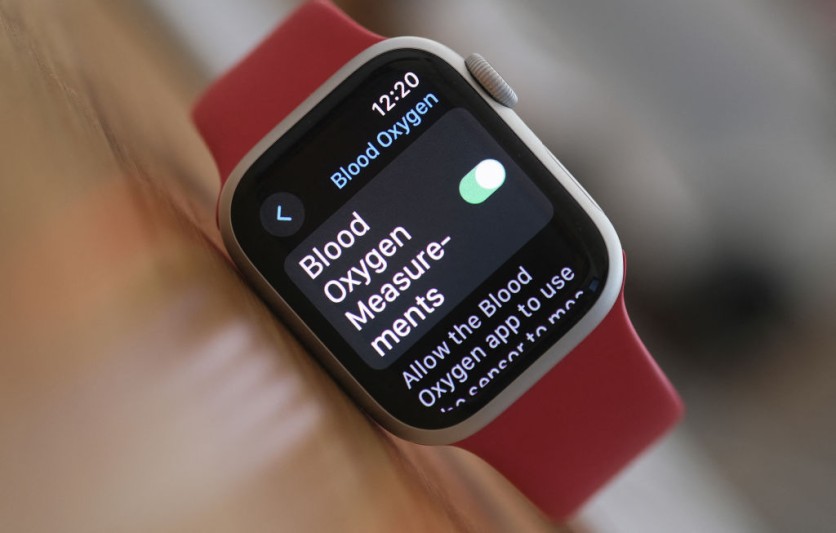Masimo Corp. CEO Joe Kiani, currently engaged in a legal battle with Apple over a blood oxygen feature, has advised consumers against relying on Apple's version of the technology, according to a report by Bloomberg.
This comes in the aftermath of Apple's decision to halt smartwatch sales, including the disputed tool, a pulse oximeter measuring blood oxygen saturation. The US International Trade Commission ruled that Apple's technology infringed on Masimo's patents.

"Better Off Without It"
In an interview with Bloomberg TV, Kiani suggested that consumers should opt for pulse oximeters from Masimo or other companies instead, emphasizing that Apple's offering is not a reliable medical pulse oximeter.
He stated, "Apple is masquerading what they are offering to consumers as a reliable, medical pulse oximeter, even though it is not. I really feel wholeheartedly that consumers are better off without it."
Apple has countered Kiani's claims, asserting that its watch's blood oxygen feature is accurate, effective for customers, and, in some instances, capable of saving lives.
Following the court ruling, Apple modified and resumed selling its Series 9 and Ultra 2 watches without the disputed feature. Apple is appealing the ITC ban, expressing strong disagreement with the court's decision.
Kiani pointed out a key distinction between Masimo's blood oxygen sensing and Apple's implementation. Masimo's offering has received approval from the US Federal Drug Administration (FDA), while he criticized Apple's feature for providing only two measurements a day.
He suggested that Apple introduced the tool during the COVID-19 pandemic to gain market share from Fitbit, now a part of Google's Alphabet.
Masimo vs Apple
Kiani contended that pulse oximetry only proves beneficial when employed as a continuous monitor, particularly during sleep. He highlighted the potential occurrence of desaturation during sleep, associated with conditions like apnea or perilous desaturation due to opioid pain relief. According to him, the real value of the technology lies in these scenarios.
However, Apple clarified that its watch wasn't specifically designed to continuously detect desaturation events.
Instead, it conducts spot checks on demand and intermittent background assessments to evaluate blood oxygen levels. Apple emphasized that the precision of a device relies on comparisons to high-quality reference data, countering Kiani's emphasis on the importance of continuous measurements.
Regarding discussions aimed at settling, Kiani noted that he personally hasn't engaged with Apple for a resolution, and there hasn't been any outreach from Apple for an agreement. Apple, on the other hand, countered this by stating that the company has participated in mediation, and there are plans for future meetings.
Kiani dismissed the idea that Masimo is employing a trial-and-error approach against Apple, asserting that none of Masimo's patents have been invalidated. In contrast, Apple argued that 15 out of 17 Masimo patents were deemed invalid in earlier legal proceedings, and the ongoing ITC case revolves around two specific patents.
Related Article : Apple Officially Removes Watch Series 9 From Its Online Shop

ⓒ 2026 TECHTIMES.com All rights reserved. Do not reproduce without permission.




